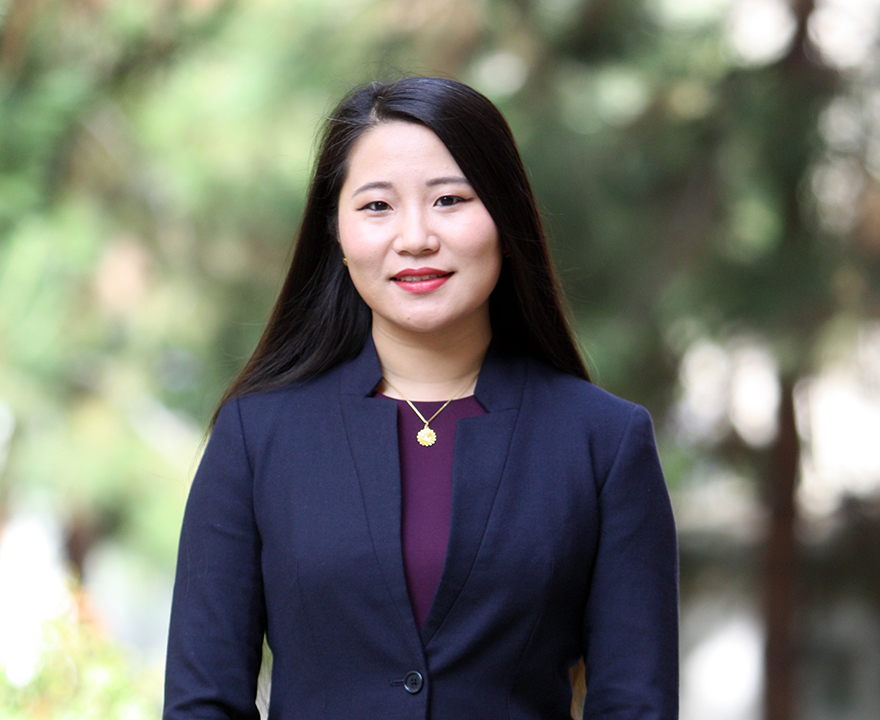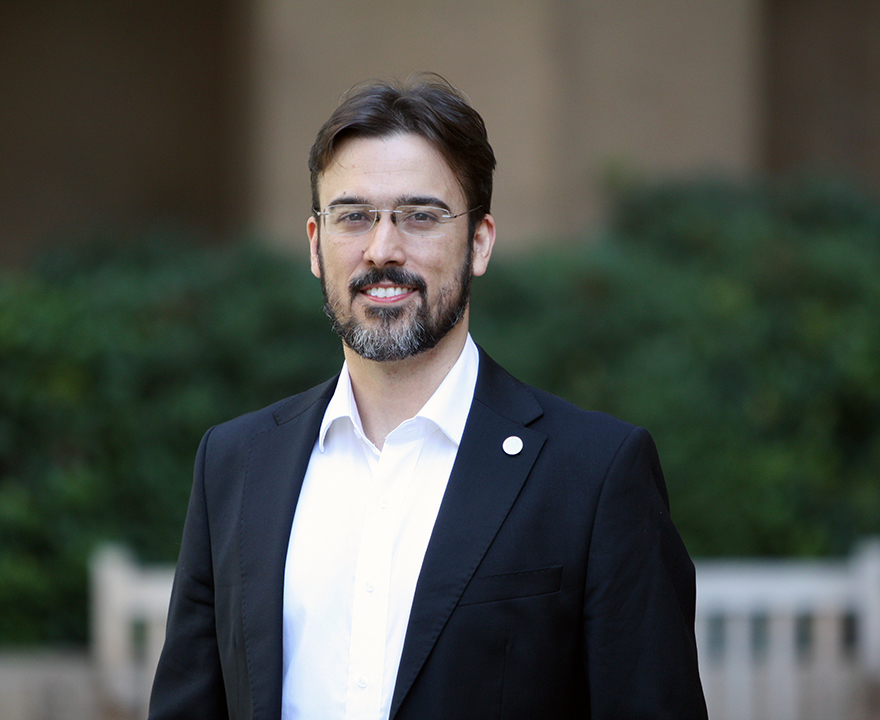The power of networks

The power of networks
- December 8, 2020
- UCI researchers join forces with national team to study U.S. food supply chain disruptions and innovations due to Coronavirus closures
 By mid-March, with much of the country shut down to stem the spread of COVID-19, Li
Zhang and her collaborator, Gustavo Oliveira, were - like many around the world –
witnessing the impact of pandemic panic buying and Coronavirus closures. Empty grocery
store shelves where staples like flour, rice and bread were once stacked instead brandished
signs limiting bulk purchases and notifying consumers when limited shipments would
arrive. At the same time, Zhang, a visiting assistant professor of global and international
studies at UCI and active WeChat user, started seeing a new form of commerce emerging
on the online platform among her predominantly Chinese contacts across Orange and
Los Angeles Counties.
By mid-March, with much of the country shut down to stem the spread of COVID-19, Li
Zhang and her collaborator, Gustavo Oliveira, were - like many around the world –
witnessing the impact of pandemic panic buying and Coronavirus closures. Empty grocery
store shelves where staples like flour, rice and bread were once stacked instead brandished
signs limiting bulk purchases and notifying consumers when limited shipments would
arrive. At the same time, Zhang, a visiting assistant professor of global and international
studies at UCI and active WeChat user, started seeing a new form of commerce emerging
on the online platform among her predominantly Chinese contacts across Orange and
Los Angeles Counties.
“With all of the supply chain disruptions happening, restaurants closed or with reduced operations, and virtually no or very limited institutional clients, wholesalers began connecting with consumers to offload products, filling a need for both,” says Zhang who teaches Global Food and the Environment and Global Pandemics courses at UCI.
It was a bit messy at the outset, she says, as buyers scrambled to either cost share or take delivery of products not intended for individual consumption (like the 50-pound bag of flour her household is still working its way through). But the result, says Oliveira, an assistant professor of global and international studies at UCI, has been a fascinating new network of exchange fueled by crisis-driven ingenuity.
“The buying and exchange habits that transpired at the outset of the pandemic are not unlike what you might see in times of other crises, like a hurricane, but what’s different here is the length of time the pandemic has required these systems to operate and the importance informal, less established networks have played,” says Oliveira. “We’re interested in how some of these new systems might be sustained, how old systems might be better adapted for resilience during future catastrophes, and what these changes mean for vulnerable communities involved in the processes.”
 As scholars who study critical food, agricultural and environmental justice issues,
Zhang and Oliveira shared their observations and interest in the new phenomenon with
their research networks, and a team was quickly formed to dive into the ways the pandemic
has disrupted and adapted regional food supply chains in the U.S. The collaborative
effort – which includes economists, landscape architects, communication specialists,
and other interdisciplinary social scientists and political ecologists at the University
of Florida, University of Wisconsin Madison, University of Minnesota, and Kansas State
University – was recently awarded a $1 million rapid response grant from the National
Institute of Food and Agriculture, part of the U.S. Department of Agriculture.
As scholars who study critical food, agricultural and environmental justice issues,
Zhang and Oliveira shared their observations and interest in the new phenomenon with
their research networks, and a team was quickly formed to dive into the ways the pandemic
has disrupted and adapted regional food supply chains in the U.S. The collaborative
effort – which includes economists, landscape architects, communication specialists,
and other interdisciplinary social scientists and political ecologists at the University
of Florida, University of Wisconsin Madison, University of Minnesota, and Kansas State
University – was recently awarded a $1 million rapid response grant from the National
Institute of Food and Agriculture, part of the U.S. Department of Agriculture.
For their part, Zhang and Oliveira received $92,057 to adapt surveys originally developed to study climate change-induced disruptions of agricultural production, and organize qualitative case studies and focus groups for food supply chain actors to share innovations. The project will reveal how traditional - as well as the emergence of alternative - networks have enabled the food supply chain to survive and thrive amid the COVID-19 crisis. They plan to pay particular attention to issues of gender, race, social equity and resilience along the entire food supply chain – from farm workers to processing plants to distribution drivers and centers - so they may highlight the disproportionate weight vulnerable and marginalized communities carry within the network while experiencing crisis-driven hardship themselves. Their partnerships with the LA Food Policy Council and the University of California Division of Agriculture and Natural Resources will help get the survey directly into the right hands in California, says Oliveira, while similar community partnerships will help facilitate regional distribution across the nation.
“Given the risk of future pandemics and climate change-induced disruptions to local and even global food supply chains, our research will continue to generate crucial knowledge and practical engagements for many years to come,” says Oliveira.
Funding for this work began in September and runs through September 2022.
-Heather Ashbach, UCI Social Sciences
-pictured: Zhang, Oliveira.
Share on:


connect with us: